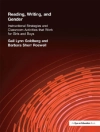‘To improve teaching quality and student learning outcomes, someone has to take the reins and lead the effort with intelligence, skill, sensitivity, and a clear sense of purpose. This book offers the ′why′ and ′how′ to those willing to take on the challenge to accomplish that goal.’
—Thomas R. Guskey, Professor of Educational Psychology
University of Kentucky
‘This book places ′learning in community′ at the forefront of PLC work. The authors provide a treasure trove of cognitively engaging learning opportunities that build a communal knowledge base.’
—Diane Zimmerman, Superintendent
Old Adobe Union School District, Petaluma, CA
‘Too often PLCs are treated as events. The authors of this fine book make clear that an authentic PLC is about embracing a form of leadership and learning in schools that requires fearless examination of teaching practices, faculty interactions, and student learning toward the goal of increased successful student learning. The book is rich with information, resources, and learning activities revealing how this can be accomplished.’
—Robert J. Garmston, Cofounder, Institute for Intelligent Behavior
Professor Emeritus, California State University, Sacramento
The how-to guide for developing, implementing, and sustaining a PLC!
Shirley M. Hord and William A. Sommers′ best-selling book Leading Professional Learning Communities introduced educators to the research-based components of an effective professional learning community (PLC). Now this implementation handbook offers more than 30 structured ‘learning opportunities’ to help busy educators put the components into practice.
Ideal as a companion to the original book but also valuable as a standalone resource, this sequel guides educators in developing a new PLC or sustaining an existing one. Members of PLCs can use the engaging learning opportunities to facilitate individual and team development by exploring:
- Beliefs, values, and vision
- Shared leadership
- Structural conditions
- Relational conditions
- Intentional learning
- Sharing personal practice
Guiding Professional Learning Communities is a rich field guide for increasing and enhancing teaching quality through the power of educators learning together.
Зміст
Foreword by Roland S. Barth
Acknowledgments
About the Authors
Part I. Introduction: Things You Need to Know Before You Use This Book
Part II. Words to the Wise: Before You Begin
Part III. Learning Opportunities: Tools, Tasks, Deep Thinking, and a Wee Bit of Trivia
Learning Opportunity 0.1: A Crisp Rationale for PLCs
Learning Opportunity 0.2: Benefits to Staff and to Students: A Flamingo Dialogue
Learning Opportunity 0.3: Research-Based Components of a PLC: A Jigsaw
Component 1: Shared Beliefs, Values, and Vision
Overview and Current Thinking
Learning Opportunity 1.1: My Personal Learning Compass
Learning Opportunity 1.2: Creating a Culture of Academic Optimism
Learning Opportunity 1.3: Prioritized Abandonment
Learning Opportunity 1.4: Discovering Our Core Values
Component 2: Shared and Supportive Leadership
Overview and Current Thinking
Learning Opportunity 2.1: Friendly Feedback for the Principal
Learning Opportunity 2.2: A Guide for Making Decisions
Learning Opportunity 2.3: Learning Conversations
Learning Opportunity 2.4: Planting the PLC in a Strong Culture
Learning Opportunity 2.5: Positive Deviance
Learning Opportunity 2.6: Distributed Leadership
Component 3: Structural Conditions
Overview and Current Thinking
Learning Opportunity 3.1: Time and Other Essential Ingredients
Learning Opportunity 3.2: Assessing the Effectiveness of PLC Meetings
Learning Opportunity 3.3: Assessment for PLC Development
Learning Opportunity 3.4: The Learning Community’s WORK
Learning Opportunity 3.5: Identifying a PLC Learning Goal
Learning Opportunity 3.6: Traffic Light Indicator
Component 4: Relational Conditions
Overview and Current Thinking
Learning Opportunity 4.1: The Importance of Trust in the PLC
Learning Opportunity 4.2: Group Development
Learning Opportunity 4.3: Mapping Collaborative Interactions
Learning Opportunity 4.4: Relational Conditions
Learning Opportunity 4.5: Building Consensus
Learning Opportunity 4.6: Defusing Conflict in a PLC
Component 5: Intentional Collective Learning and Its Application
Overview and Current Thinking
Learning Opportunity 5.1: Leadership and the Enemies of Learning
Learning Opportunity 5.2: Twelve Principles for Effective Adult Learning
Learning Opportunity 5.3: The PLC Action Plan
Learning Opportunity 5.4: Listening Together in the PLC
Learning Opportunity 5.5: Using the Stages of Concern to Connect Professional Learning to the Classroom
Learning Opportunity 5.6: Using the Levels of Use (Lo U) to Connect Professional Learning to the Classroom
Learning Opportunity 5.7: PLC Growth Development Profile
Component 6: Sharing Personal Practice
Overview and Current Thinking
Learning Opportunity 6.1: “Foursight” for Learning: Four Focus Areas to Consider in Monitoring for Student Learning
Learning Opportunity 6.2: Four Conversations
Learning Opportunity 6.3: Coaching: Transferring Adult Learning to the Classroom or What’s Learned Here Leaves Here
Learning Opportunity 6.4: Reflection Protocols
Learning Opportunity 6.5: Video Sharing Protocol
Part IV. Bringing Closure
Resource A
References
Index
Про автора
William A. Sommers, Ph.D. of Austin, Texas, continues to be a learner, teacher, principal, author, leadership coach, and consultant. Bill has come out of retirement five times to put theory into practice. He was on the Board of Trustees for five years and President for the National Staff Development Council now called Learning Forward.
Dr. Sommers is the former Executive Director for Secondary Curriculum and Professional Learning for Minneapolis Public Schools, and a school administrator for over 30 years. In addition to being an adjunct faculty member at several universities, he has been a program director for an adolescent chemical dependency treatment center and on the board of a halfway house for 20 years.
Bill has co-authored eight books, and co-authored chapters in several other books. In January 2016 Bill and his colleague Skip Olsen launched a website www.learningomnivores.com which includes educational blogs, new rules, and book reviews. Bill is a practitioner who integrates theory into leading and facilitating schools. Dr. Sommers has continued to be a leadership coach for over 25 years to school administrators.












